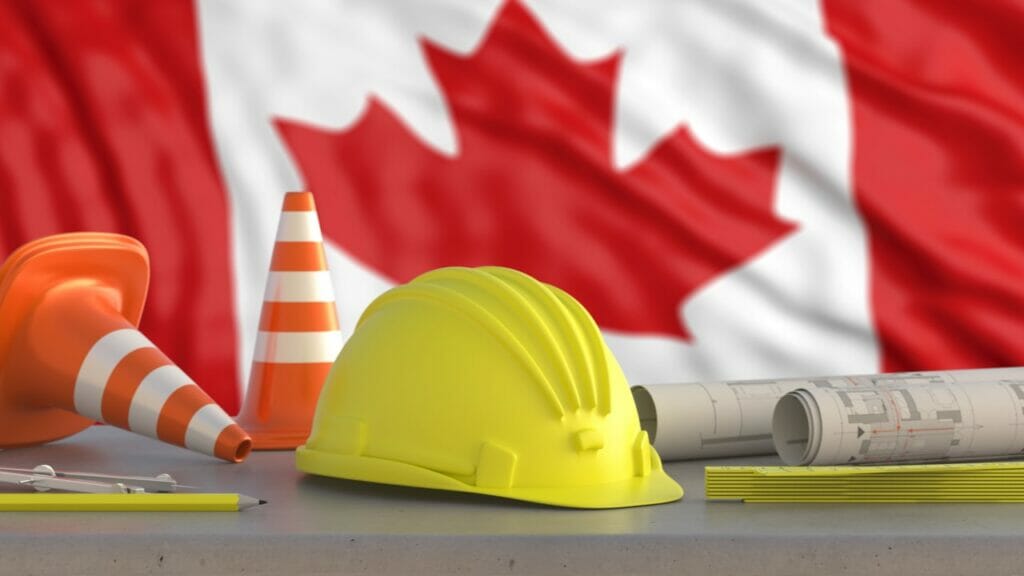Engineering is a popular and highly regarded STEM (science, technology, engineering, and mathematics) course. They provide many solutions to problems like climate change, healthcare technology, harvesting, IT, and manufacturing fields. The potential to solve social issues and work for a better future inspires students to opt for engineering courses. Engineers work beyond the limits, leading to discovering and developing new methods and technology. It leads to innovation in healthcare, medicine, manufacturing, and construction. An engineering degree opens the gates to many job opportunities. Canada is among the best study abroad destinations for Indian students. Engineering Universities In Canada are known for their outstanding education system and research projects in majors like Mechanical and Electrical.
Table of Contents

Which country do you want to study in?
Do you have a valid passport?
When do you want to study abroad?
What's your preferred program?
What's your highest level of education?
What is your IELTS/PTE/Duolingo Status?
How Leap will help you
Personalised University Shortlist
Express Applications with Quicker Admits
End-to-End Application Support
Reasons to Study Engineering in Canada
The following are the reasons to study engineering in Canada-
- Canada offers world-class education and technologies to engineering aspirants. It has the best universities and several specialised programs for international students.
- Canadian universities not only offer I.T. study programs related to Computer Software, Hardware, Processes, and Programming Languages but are also exploring niche I.T. fields. They offer Data Science, Artificial Intelligence, Cyber security, and advanced study courses.
- Graduates from computer science, biomedical engineering, environmental sciences, or allied sciences are all in high demand worldwide.
- As per statistics, the new job openings for mechanical engineers are expected to grow by 11,300 between 2019-2028. There are more than 1 lakh registered engineering companies in Canada. The best ones are AECON, CIMA, Banterer, and Canadian Natural Resources. They make Canada the perfect destination for engineering students to study and settle down with handsome salaries.
Different Engineering Courses Offered by Universities in Canada
Here is a list of Engineering courses offered by Canadian Universities and Colleges-
- Civil engineering
- Computer science
- Chemical engineering
- Software engineering
- Electrical engineering
- Mechanical engineering
- Industrial engineering
- Biomedical engineering
- Applied science
- Aerospace engineering
- Environmental engineering
- Mining
- Robotics
- Mechatronics
Engineering Programs in Canada: Degree and Types
There are numerous specifications in the engineering field. An Engineering degree is awarded as-
| Programme type | Degree | Course duration | Tuition Fees in CAD |
|---|---|---|---|
| Undergraduate Programs | Bachelor’s in Engineering (B.E.) Bachelor’s of Applied Science Bachelor in Technology (B.Tech) | 4 years | $ 11,000 - 62,250 |
| Master’s Degree or Graduate Program | Masters of Engineering(M.E.) Master of Applied Science Masters in Technology (M.Tech) | 2 years | $ 7,100-45,000 |
| Doctoral | Doctorate of Philosophy (Ph.D.) | 3-5 years | $ 4,657-11,728 |
| Diploma | Diploma courses in various branches of engineering | 1 year | Vary for universities |
Application Process
To get admission to Canadian colleges and universities, students should follow these steps-
- Search for a suitable engineering course as per their eligibility requirements, interest, specialised program, city, and budget.
- Once you shortlist the college, fill out the application form and pay the application fee. Most colleges have their websites or online portals.
- Send transcripts and other documents directly to the university address either by post or mail.
- Apply for a student visa and study permit.
Explore all countries
Eligibility Criteria for Bachelors Engineering Course
To get into a bachelor's engineering course in Canadian universities, international students should have a
- An aggregate of 60% in the 12th class. It may vary, depending upon the university.
- Students must have a science background and knowledge of chemistry, Physics, Biology, Mathematics, and Computers
- Proof of English Language Proficiency.
Document requirements
- Documents including secondary education mark sheets and certificates
- Statement of Purpose
- Letter of Recommendation
- IELTS/TOEFL test score
Fund Requirements The average cost of education and living expenses for students pursuing Bachelor's engineering courses from Canada is 12,000-50,000 CAD a year. Many colleges and universities provide financial aid to students.
Eligibility for Masters Engineering Course
To get into a bachelor's engineering course in Canadian universities, international students should have a
- 4-year undergraduate degree in related field with minimum GPA of B+ or 76-79%. It may vary, depending on the university and your chosen course.
- Proof of English Language Proficiency
Document requirements
- Graduate degree
- Documents including secondary education mark-sheets and certificates
- Statement of Purpose
- Letter of Recommendation
- Resume/CV
- IELTS/TOEFL test score
Fund Requirements: The average cost of education and living expenses for students pursuing Master's engineering courses from Canada is 10,000-45,000 CAD a year. Many colleges and universities provide financial aid to students.
Eligibility for Doctoral Programs
To get into a bachelor's engineering course in Canadian universities, international students should have a
- Thesis-based Master's degree in Engineering or related field
- Proof of English Language Proficiency
Document requirements
- Graduate degree
- Documents including secondary education mark sheets and certificates
- Statement of Purpose
- Letter of Recommendation
- Resume/CV
- IELTS/TOEFL test score
Fund Requirements: The average cost of education and living expenses for students pursuing Ph.D. engineering course in Canada is 5,000-12,000 CAD a year. Many colleges and universities provide financial aid to students.
Top Engineering Universities In Canada
Around 114 universities and colleges offer more than 2067 engineering courses in Canada. As per Q.S. World Ranking 2021, the top 6 Engineering Universities In Canada are-
| Q.S. World Ranking 2021 | University | Courses | Tuition Fees INR |
|---|---|---|---|
| 25 | University of Toronto | 4 Bachelor degrees 12 Master’s degrees 4 Doctoral degrees | ₹ 18 to 37 lakhs for the first year |
| 45 | University of British Columbia | 13 Bachelor’s degrees 2 Master’s degrees 1 Doctoral degree | ₹ 25 to 33 lakhs for the first year |
| 31 | McGill University, Montreal | 13 Bachelor degrees 16 Master’s degrees 9 Doctoral degrees | ₹ 12 to 29 lakhs for the first year |
| 119 | University of Alberta | 17 Bachelor degrees 6 Master’s degrees 3 Doctoral degrees | ₹ 4 to 23 lakhs for the first year |
| 166 | University of Waterloo | 17 Bachelor’s degrees 3 Master’s degrees | ₹ 23 to 37 lakhs for the first year |
| 246 | Queen’s University, Kingston | 10 Bachelor degrees 10 Master’s degrees 7 Doctoral degrees | ₹11 to 32 lakhs for the first year |
Job Prospects
Here are a few facts stating that Canada has good employment scope for engineers-
- The employment percentage of engineers in Canada ranges from 87%-89%.
- Engineers in Canada earn an average of $79,550 per year or $40.80 per hour.
- The average entry-level salary is around $60,062, and it may increase up to $120,000 per year as per experience
- The average annual salary of various engineers are-
- Civil Engineers-50,000-100,000 CAD
- Mechanical Engineers- 60,000-100,000 CAD
- Software Engineers- 50,000-120,000 CAD
- Industrial and Manufacturing Engineers- 50,000-100,000 CAD
- Electrical and Electronics Engineers- 60,000-100,000 CAD
Conclusion
Canada is among the popular studying abroad destinations for students in India. It has the best colleges and universities that offer Bachelor's, Master's, Diploma, and Doctoral engineering courses. It is best to check for eligibility requirements before applying to the course for a smooth admission process. The Engineering Universities in Canada provide financial aid to international students based on academic excellence and financial needs.
Leap Scholar can help you with not only your financial needs but also your counselling needs.
Frequently Asked Questions
1. What are the best cities in Canada for international students to study engineering?
Three cities—Toronto, Montreal, and Vancouver—are considered the best cities in Canada for international students to pursue engineering. They offer excellent education, lifestyle, and low living expenses.
2. After graduating from Canadian universities, what are the best countries to work as an engineer?
3. Are Indian students allowed to work in Canada after graduating with a master's degree?
Yes, they need to apply for a post-graduate work permit to apply for a job in Canada.

















Have Questions? Get Guidance to reach your Dream University
Connect with India's finest counsellors and biggest study abroad community.
Get Guidance